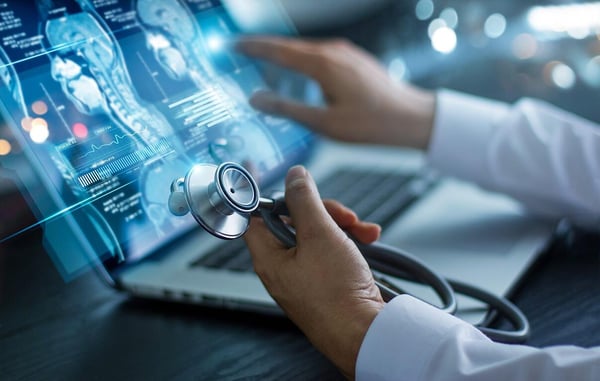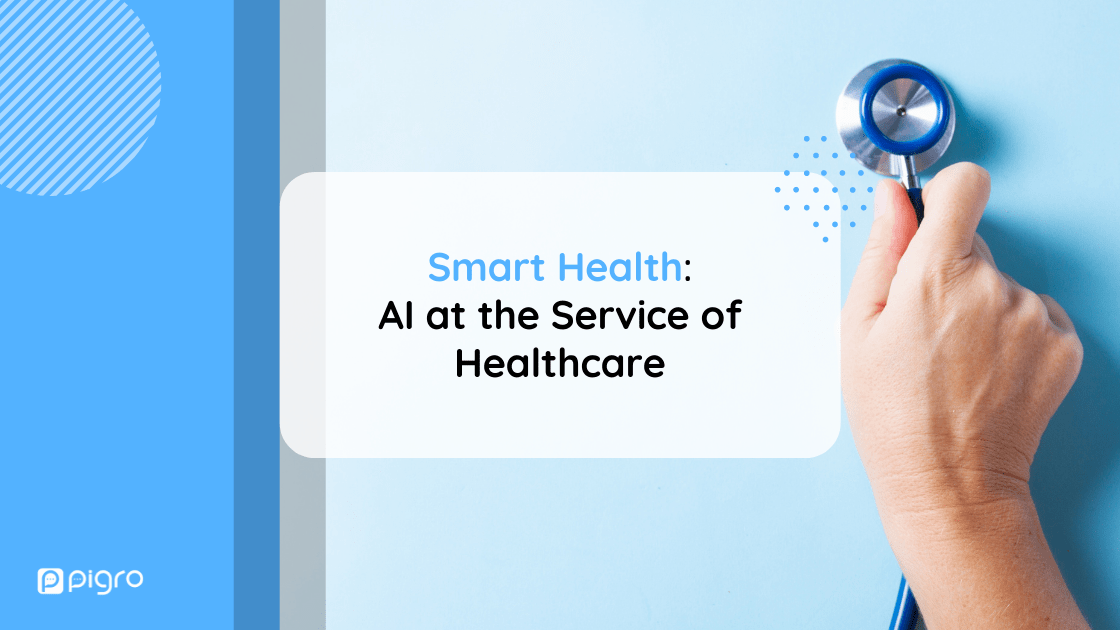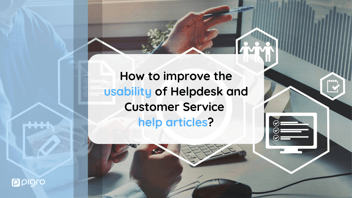Smart Health, Artificial Intelligence, healthcare: they can make it possible to speed up clinical examinations and medical procedures, obtain disease diagnoses and administer treatment.
Artificial Intelligence in healthcare implements healthcare technologies, making medical and digital healthcare increasingly innovative.
Growing digital infrastructure in the health system
The massive amount of data from public health is undergoing a digitization process today. From information collection systems to staff and facility management systems, the healthcare world is gradually adapting to the use of technology.
To exploit all this information, models based on Artificial Intelligence and neural networks are being developed that can learn from the data with which they are fed.
In addition to guiding in the use of resources, simulating for example the occupancy of beds in a facility, AI systems can also be implemented to study and correlate information from medical records and examinations to diagnose diseases or possible treatments.
Medicine and Artificial Intelligence: What are the areas of application
The development of Artificial Intelligence in the medical field is certainly still in its infancy, but it has vast potential for application. Among medical apps and innovative tools, the main fields are three: predictions, diagnosis, and treatments. Let's see in detail:
- Predictions: on December 30th, 2020, BlueDot, an American company that uses machine learning to monitor infectious disease outbreaks around the globe, noticed an unusual spike in pneumonia in the Wuhan region of China. With this news, it alerted all its customers, including governments, hospitals, and businesses. This was 9 days before WHO officially notified of the COVID-19 infection.
Companies like BlueDot use AI and Natural Language Processing to monitor information and reports from around the world. Predicting what will happen requires a clear picture of the current situation, so AI should have access to as much data as possible.
Accessibility to public health, however, is restricted both because of patients' privacy (which would then have to be eliminated) and because of the difficulty of accessing information located in thousands of different databases and managed by different services. Knowledge sharing between countries is therefore still lacking.
- Diagnosis: Artificial Intelligence and medical diagnosis are not two such distant fields: AI, in fact, can help us do a CT scan in 20 seconds. The Policlinico Universitario Campus Bio-Medico in Rome has purchased an Artificial Intelligence system from China, which has been used so far in hospitals in Wuhan.
This system allows analyzing in 20 seconds the images obtained from the lung scan and understanding if it is CoronaVirus pneumonia. Campus Bio-Medico has made this system available to all Italian hospitals, allowing them to send a digital image of the patient's CT scans to their team and get feedback from the AI system.
Similar tools analyze data (in this case, images) and then generate input capable of assisting human-made diagnoses by catching signs of disease.
The diagnostic application of AI requires a lot of data to learn from, but it represents a potential tool to pick up on symptoms that the human eye might miss, detecting previously unknown correlations between the results of various clinical tests.
The one at Campus Bio-Medico in Rome is an example of how digital health in Italy is starting to spread, allowing medicine and digital technologies to improve performance and speed up diagnostic processes.
To date, AI for diagnostic purposes can recognize symptoms that are already present at an advanced level, implementing systems that can achieve results in far fewer steps than it would take for humans and, more importantly, capable of being adapted to multiple tasks, even with little data available.
-Treatments: SRI International, an American research institute, is studying an Artificial Intelligence system that can use deep learning to discover new drugs. Candidates are then tested by scientists to assess their effectiveness, but the process that leads to obtaining a treatment to launch on the market still takes several months.
This type of AI uses algorithms capable of sifting through a vast amount of data in a short amount of time and can therefore be used to rapidly search through millions of biological and molecular structures and discover new drugs.

The development of Smart Health
For the varied possibilities of AI for medical use to produce real results, there needs to be global coordination, as well as timing and collaboration between different figures. In a pandemic situation, the circulation of information and dissemination of data, especially from the healthcare system, can save lives.
So-called Smart Health (or Digital Health) relies on reliable, efficient, and fast communication networks. This is the development of a healthcare system that allows patient clinical data to be sent between various medical devices and staff and shared to allow it to be collected and analyzed.
To this end, many apps are now being implemented to monitor the habits and health status of individuals. In the field of Digital Health, we have witnessed, especially in the last year of the COVID emergency, the development of numerous Digital Health apps, from apps for book doctor visits to apps that monitor an individual's vital parameters and health status, to apps for prescriptions. The information collected is then used by both the patient themselves and the medical staff for prevention and personalization of care.
Today's situation teaches us that we are witnessing a revolution in the healthcare sector, in an attempt to build a more technological medicine of the future. AI for medical use now makes it possible to monitor health status remotely, outside the physical confines of a hospital, consequently, its development will help in optimizing the use of resources in the healthcare system.
Read also: Innovative startups and solutions for COVID-19 emergency
Do you want to know more about Pigro? Contact us!



